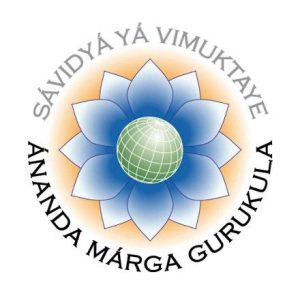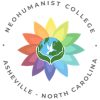We are excited to announce that we are
Now Accepting Applications
for the third two-year cohort of the Neohumanist Education Teacher Preparation Program, offered through the Neohumanist College of Asheville, with classes starting in September of 2025.
Sequence 1 is comprised of five courses and is open to general applicants, teachers, parents, caregivers, social workers, and advocates: (1) Introduction to Neohumanist Philosophy, (2) Philosophy of Neohumanist Education, (3) Inside Out Personal Development, (4) Child Development and (5) Teaching 8-Limbed Yoga for 3-10 Year Olds. Sequence 2, is for those wishing to apply to continue on to earn certification in NHE.
Learn more: https://www.nhca-gurukul.org/nhe-overview


NHE Teacher Preparation Program
Notes from the Program Director, Dr. Kathleen Kesson
We live in a liminal moment of time, a moment that offers up the possibility of an evolutionary transformation of consciousness, values, and human behavior. The multiple and interlocking crises on our beautiful and tiny planet make it super clear that we can no longer keep doing things the way we have been doing them. The philosophy of Neohumanism asks us to reconsider the fundamentals — the nature of human beings, the nature of knowing, what we value, and how we are to live. Rethinking the fundamentals requires rethinking the aims, purposes, and practices of education, for it is young people who will carry the present into the future.In the global network of Neohumanist educators, a number of people are involved in the preparation of new teachers and the continued professional development of experienced teachers. These programs and offerings occur in many parts of the world, and take shape in different formats. Knowledge of “best practices in Neohumanist Education” has been shared at retreats and educational conferences for many decades. Through the years, efforts have been made to create more systematic approaches to the preparation of Neohumanist educators, but these have been slow to develop given our global student body and the challenges of communication.
The pandemic was a tragedy of global dimensions that affected all of us. Ironically, it also opened up new possibilities. Because so much interaction moved to the online format, we became more adept at webinars and other forms of internet communication that can accelerate the growth of our educational movement. With the Neohumanist College of Asheville, we designed a program of study leading to a Level One certification for teachers that will be awarded by Ananda Marga Gurukula.
With an increased focus on developing a shared theoretical and practical basis, we hope to bring Neohumanist Education to a new level of professional viability and visibility. The task has presented us with an exciting challenge. Because Neohumanist Education, unlike other alternatives, embraces a dynamic approach that is responsive to changing times, places, and circumstances, teacher preparation too must be dynamic and responsive to changing conditions and to new research-based knowledge.
As of 2025, we will have graduated two cohorts of students from across the globe who bring a wealth of experience and insight to our online class meetings. What we are learning is that the opportunity to connect with other Neohumanist educators, learn from them, and build collegial relationships is a major draw of the program. Building on the primary source materials given us by P.R. Sarkar, and a recently released comprehensive textbook, Becoming One With the World: A Guide to Neohumanist Education, we are collectively generating practices and principles of Neohumanist education that will serve to illustrate what is distinct about our approach in the larger world of holistic alternative education. We are guided in this quest by innumerable questions, which we engage with across the curriculum of the program:
- What are the contours of a Neohumanist worldview?
- How are worldviews shaped and how can they be re-formed?
- What is the role of education in the transformation of consciousness?
- What does Neohumanist Education offer to the holistic education movement that is unique?
- What does it mean to hold a global, universal vision for humanity while at the same honoring local language, tradition and custom?
- What does it mean to prepare young people with the latest scientific understandings as well as a reverence for more ancient ways of knowing?
- What are optimum ways to cultivate rationality and an appreciation for science that is tempered and informed by intuition and contemplative practice?
- What is the role of the arts in a Neohumanist Education?
- How can we bring an ethical dimension to all subject matter?
- How do we prepare students to acknowledge the inherent value of all species, while recognizing their unique role as human beings?
- What does it mean to be human in a Neohumanist world?


